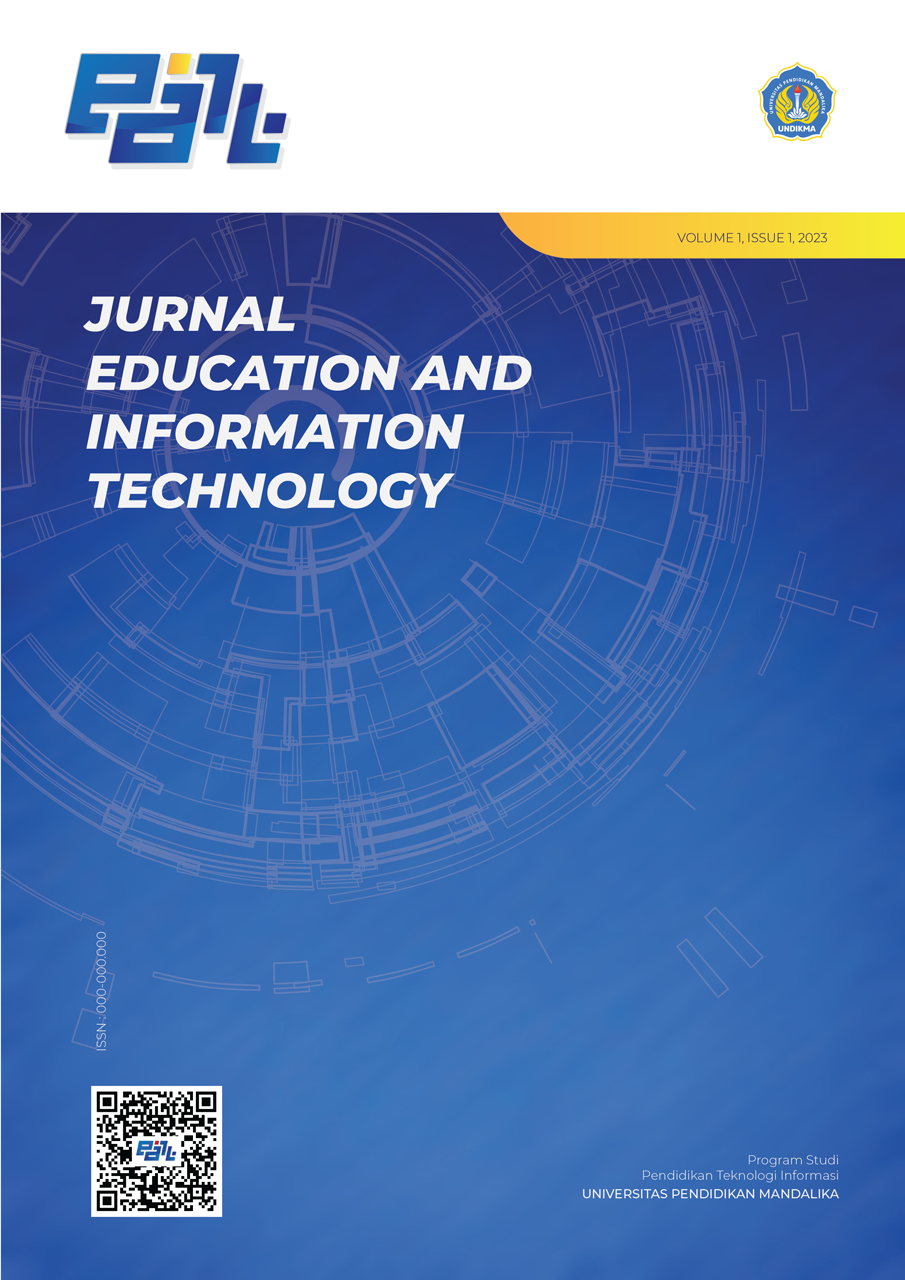Analisis Tingkat Kecemasan Matematika pada Siswa SMA Ditinjau dari Motivasi dan Hasil Belajar
Abstract
References
Din Harefa Ahmad, Lase Sadiana, Zega Yulisman (2023). Hubungan Kecemasan Matematika Dan Kemampuan Literasi Matematika Terhadap Hasil Belajar Peserta Didik, Educativo: Jurnal Pendidikan, Vol.2 Prodi Pendidikan Matematika, FKIP,Universitas Nias,Indonesia.
Dina Alifa Shafira , Ambarwati Lukita , Meiliasari. 2022. Literature Review: Faktor Kecemasan Matematika Siswa dan Upaya Mengatasinya. J-PiMat
Disai, W. I., Dariyo, A., & Basaria, D. (2018). Hubungan Antara Kecemasan Matematika Dan Self-Efficacy Dengan Hasil Belajar Matematika Siswa Sma X Kota Palangka Raya. Jurnal Muara Ilmu Sosial, Humaniora, Dan Seni, 1(2), 556. https://doi.org/10.24912/jmishumsen.v1i2.799
Dzulfikar, A. (2016). Kecemasan Matematika Pada Mahasiswa Calon Guru Matematika. JMPM: 11 EDUMATIC: Jurnal pendidikan MatematikaVolume 3, Nomor 1. Januari 2022, Pp 1-12 Jurnal Matematika Dan Pendidikan Matematika, 1(1), 34. https://doi.org/10.26594/jmpm.v1i1.508
Emzir, 2013. Metode Penelitian : Kualitatif & Kuantitatif (korelasional,eksperimen, expost Lacto, Etnografi, grounded Theory, Actions reaserhc).PT. RAJARAFINDO PERSADA.
Erik. 2021. Kecemasan Matematis: What and How?. Indonesian Journal Of Education And Humanity. Volume 1 No 1 Februari 2021, E-ISSN: 2774-8332
Fatrima. 2017. Ada apa dengan kecemasan matematika, Journal of Mathematics Education IKIP Veteran Semarang.
Hakim, R. N., & Adirakasiwi, A. G. (2021). Analisis Tingkat Kecemasan Matematis Siswa SMA. Jurnal Pembelajaran Matematika Inovatif, 4(4), 809–816. https://doi.org/10.22460/jpmi.v4i4.809-816
Ikhsan, M. (2019). Pengaruh Kecemasan Matematis Terhadap Hasil Belajar Matematika. De Fermat : Jurnal Pendidikan Matematika, 2(1), 1–6. https://doi.org/10.36277/defermat.v2i1.28
Julya Dina , Dewi Nur Iyan Rosita. 2022. Studi Literatur Mengenai Kecemasan Matematis Terhadap Pembelajaran Matematika. Jurnal Didactical Mathematics.
Kurniawati Eka.(2017).Deskripsi Motivasi dalam Pembelajaran Matematika Siswa Kelas VII di SMP-Bunayya Pekan Baru.Universitas Islam Riau
Laka, B. M., Burdam, J., & Kafiar, E. (2020). Role of Parents in Improving Geography Learning Motivation in Immanuel Agung Samofa High School. Jurnal Inovasi Penelitian, 1(2), 69–74. https://doi.org/10.47492/jip.v1i2.51
Nurhidayat Anugrah, Djidu Hasan (2022). Kecemasan Matematis: Karakteristik, Dampak, Dan Solusi Mengatasinya. Jurnal Pendidikan Matematika. Volume 3 nomor 1.
Pada, M., Calon, M., Sd, G., & Purwokerto, I. (2016). Jurnal Pendidikan Matematika FKIP Univ. Muhammadiyah Metro. 5(2), 120–127.
Prasetyo Freddy. (2023). Identifikasi Kecemasan Matematika dan Motivasi Belajar Terhadap Hasil Belajar Matematika Siswa. Jurnal Pendidikan Matematika. Volume 4, Nomor 2
Rizki Nurhana Friantini , Rahmat Winata. 2019. Analisis Minat Belajar Pada Pembelajaran Matematika. Jurnal Pendidikan Matematika Indonesia Santri Syafri
Setiyadi, Ag Bambang. (2010). Metode Penelitian Untuk Pengajaran Bahasa Asing, Pendekatan Kuantitatif dan Kualitatif. Graha Ilmu.
Sugiono, 2013. Metode Penelitian : Kualitatif, Kuantitatif dan R&D. ALFABETA.Bandung
Supriatna, A., & Zulkarnaen, R. (2019). Studi Kasus Tingkat Kecemasan Matematis Siswa SMA. Prosiding Seminar Nasional Matematika Dan Pendidikan Matematika, 2(1), 730-735. Karawang: Universitas Singaperbangsa.
Sabirin Muhammad. (2014) presentasi dalam pembelajaran matematika. JPM IAIN Antasari. Vol.01 No.2
Yusuf A Muri. 2014. Metode Penelitian : Kualitatif, Kuantitatif dan penelitian gabunan. PRENADAMEDIA GROUP. Jakarta Santoso
Downloads
Published
How to Cite
Issue
Section
Citation Check
License
License and Publishing Agreement
In submitting the manuscript to the journal, the authors certify that:
- They are authorized by their co-authors to enter into these arrangements.
- The work described has not been formally published before, except in the form of an abstract or as part of a published lecture, review, thesis, or overlay journal.
- That it is not under consideration for publication elsewhere,
- That its publication has been approved by all the author(s) and by the responsible authorities – tacitly or explicitly – of the institutes where the work has been carried out.
- They secure the right to reproduce any material that has already been published or copyrighted elsewhere.
- They agree to the following license and publishing agreement.
Copyright
- Authors who publish with JTP agree to the following terms:
- Authors retain copyright and grant the journal right of first publication with the work simultaneously licensed under a Creative Commons Attribution License (CC BY-SA 4.0) that allows others to share the work with an acknowledgment of the work's authorship and initial publication in this journal.
- Authors are able to enter into separate, additional contractual arrangements for the non-exclusive distribution of the journal's published version of the work (e.g., post it to an institutional repository or publish it in a book), with an acknowledgment of its initial publication in this journal.
- Authors are permitted and encouraged to post their work online (e.g., in institutional repositories or on their website) prior to and during the submission process, as it can lead to productive exchanges, as well as earlier and greater citation of published work.
- Licensing for Data Publication
Licensing for Data Publication
JEDIT use a variety of waivers and licenses, that are specifically designed for and appropriate for the treatment of data:
Open Data Commons Attribution License, http://www.opendatacommons.org/licenses/by/1.0/ (default)



